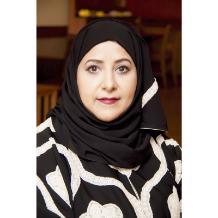Jehad Al Busaidi
PhD Student
Profile
Biography
I am Jehad from the sultanate of Oman, in the Middle East and one of the six GCC Countries.
My concern about the environment have been developed since I started working as a chemical standard specialist in 1997 In Ministry of commerce and Industry where I had visited a lot of Industries and activities which are emitting different types of pollution. My visits of other countries Industries help me in locating our national industrial situation compared to other.
I used to be a member in different technical committee in the national, regional and international level which are looking to the environment from different aspects.
Social media was one of my easy and quick ways of spreading awareness regarding chemistry in our life in general and industrial chemistry in specific. In 2012 I became a Team Leader of a volunteer group to spread awareness of best practices before, during, and after any hurricane or deep trough. In 2013 I wine the Sultan Qaboos Voluntary Work Award, and In 2014 I wine the Omani Twitter Award 2014 (@aumalwaleed, @NajatOman) nagat.om
Career
|
2015 - present |
PhD Student |
SEI, Department of Environment and Geography, University of York |
|
2007-2010 |
MSc Chemistry |
Department of Chemistry, Collage of Science, Sultan Qaboos University. |
|
1991-1996 |
BSc Chemistry |
Department of Chemistry, Collage of Science, Sultan Qaboos University. |
|
1997-present |
Feb 2014: Head of Food Chemical Lab. section -Laboratory department Feb 2008: Head of Chemical & Petroleum Products Section –Specifications department Feb 2003: Head of Chemicals & Building Materials Section –Specifications department Feb 1997: Chemical Specifications Specialist –Specifications department |
Ministry of Commerce and Industry – Directorate General for Standards and Metrology |
Research
Overview
Description of PhD
Title: THE IMPLICATIONS OF APPLYING A SHORT-LIVED CLIMATE POLUTANT APPROACH IN OMAN AND THE WEST AREA REGION
Supervisors Dr. Lisa Emberson, Dr. Johan C.I. Kuylenstierna, Dr. Harry Vallack
Funding: Ministry of Higher Education, Sultanate of Oman
Description of thesis
The Short-lived climate pollutants (SLCPs) such as black carbon, methane and tropospheric ozone have detrimental impacts on human health, agriculture and ecosystems, as well as being the main contributors to Climate change after CO2. Although Hydrofluorocarbons (HFCs) as SLCPs are of less concern currently, their contribution to climate forcing is projected to increase substantially by 2050.
The World Health Organization (WHO) stated that mortality rates in cities with higher levels of pollution are 15-20 percent more than in relatively cleaner cities. Indeed, a study states that outdoor air pollution in China is decreasing the life span of the average urban Chinese by 5.5 years. In comparison, in the European Union, which has some of the world’s most stringent air pollution standards, life expectancy is reduced by just 8.6 months because of fine particulate matter pollution.
The Sultanate of Oman is a fast growing economy since the discovery of oil in the 1980s. Oman is pushing forward economic diversification as part of the Oman Vision 2030. This will see the expansion of heavy industries, especially petrochemical and manufacturing Industries and will most likely contribute to an increase in the SLCPs in the future. Combined with rapid urbanization and a lack of knowledge about the potential impacts of these SLCP, the environment and human health may continue to suffer under such conditions.
In my research I will focus on developing an enhanced Environment Management System that can address SLCP; this will focus on the development and implementation of polices including the improvement of planning, monitoring and management of policies in order to reduce SLCP pollution and its impacts.
Abstract of the MSc thesis
A simple, fast, sensitive, versatile and environmentally friendly method for the analysis of phenols in water is proposed using microfluidic precolumn derivatization with the fluorogenic label coumarin-6-sulfonyl chloride (C6SCl) and HPLC separation on monolithic columns. Phenols react with (C6SCl) within 3.0 minutes in the microfluidic in ambient temperature to produce phenol-coumarin derivatives which separated in RP-HPLC followed by post-column ring opening and fluorescence detection at λexc = 360 nm, and λem = 460 nm. The optimum conditions for the derivatization, separation, and ring-opening reaction have been established. The calibration curves were linear for the studied phenols in the range of (0.75 – 7.5 mg l-1). The application of the method to environmental samples was demonstrated by analyzing tap and fountain water samples spiked with the phenolic compounds.
Publications
Selected publications
FakhrEldin O. Suliman*, Jihad N. Al-Busaidi, Hiader A.J. Al-Lawati and Salma M.Z. Al-Kindy (2015). Microfluidic Precolumn Derivatization of Environmental Phenols with Coumarin-6-Sulfonyl Chloride and HPLC Separation. Journal of Chromatographic Science 2015; 1–7 doi:10.1093/chromsci/bmv028

